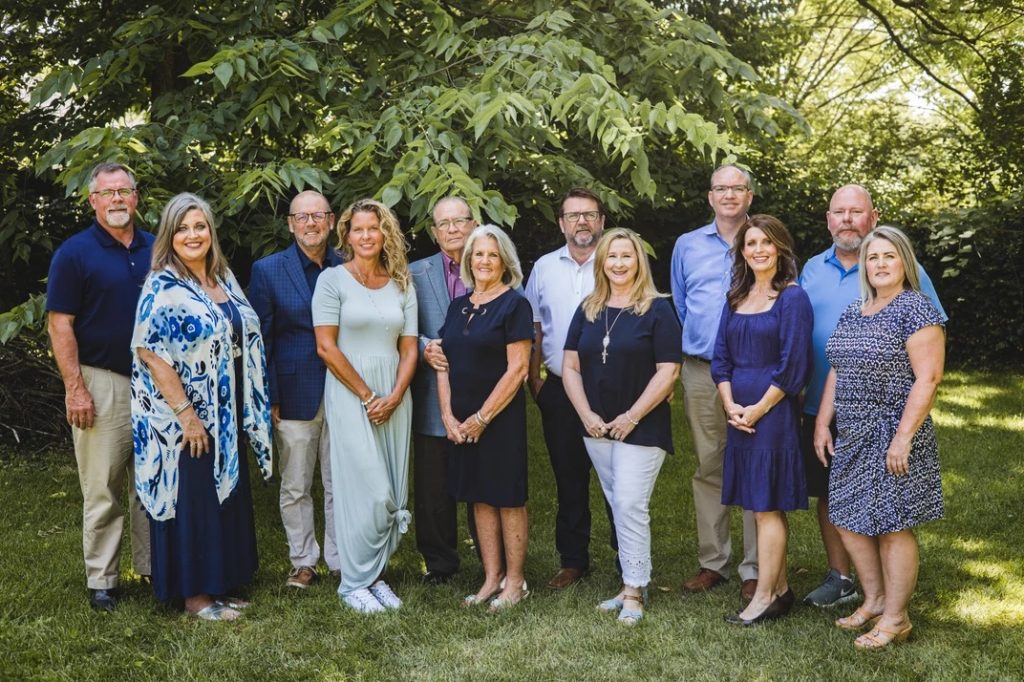
Roe v Wade
I have a lot of thoughts and emotions on today and in time I will share them as I parse them out. I can assure you they are multi-faceted and complex. Abortion has been an issue close to my heart for more than two decades and Bethany served many years as a crisis pregnancy counselor for various local resource centers and went through the process of an unplanned pregnancy herself which helped shape a lot of her views and subsequently many of my own. So this just can’t be a passing issue of minor theoretical relevance to me (I also was recommended to be aborted as an unborn baby myself, of which I am personally glad did not happen–albeit, point taken that I would have never known). So yes, thoughts and emotions.
That said, I want to implore people to remember this: no matter where you stand on today, it is more than likely (and if you don’t, you’re likely living in your own echo chamber) that you have a good deal of friends and loved ones that stand on the stark opposite of you as it relates to abortion. People you love, appreciate, and even respect as thoughtful people with genuine experiences and honest hearts.
Be patient. Be kind. This is a felt justice issue at all sides and simply condemning one side as being bigoted or evil stops any conversation from moving forward as they are or could equally condemn you under the same descriptors.
Unfortunately, I know people that will hang up friendships on this issue alone. And they will feel justified in doing so. But that doesn’t allow any potential listening to occur and even if you feel action is necessary, one should always be in a state of listening. If not to the ideas and thoughts that shape the perspective, to the person behind those ideas and thoughts.
Randy Hardman
A thesaurus
—here it comes—is for increasing one’s aliveness to words. Nothing more and nothing less. By going into the buzzing and jostling hive of words around a word, we get a purer sense of the word itself: its coloration, its interior, its traces of meaning. I looked up the verb excite just now and found the word in its affective (touch, move) and mechanical (electrify, galvanize) aspects. Which gets at who we are, as humans, doesn’t it? Feelings and circuitry.
As for you, blessed Mr. Roget, they say you had OCD. Of course you did. You were hooked, hung up, haunted by the hidden life of words: their selves, their stories, as told by the words they are closest to. You gave us a great gift. May you rest eternally among your synonyms.
James Parker – Atlantic
Hoofprint
You’ve heard of the carbon footprint. Now there is a development on the carbon hoofprint.
New Zealand has announced a plan to tax livestock burps in an effort to curb the country’s gas emissions.
Methane emissions from animals is a well-known issue. Cows alone are responsible for about 40% of those planet-warming gases globally — mainly through their burps.
UC Davis scientist Ermias Kebreab is something of a cow whisperer who has spent two decades studying the greenhouse gas contributions of hoofed animals.
“If you tell me how much your animal is consuming, I can tell you pretty closely to the actual emissions using mathematical models,” he said.
“Most of the gas is formed in their stomach, so in their guts, particularly in the first chamber. And so they belch it out.”
He and other scientists have developed special diets and genetic predictions that could help reduce the methane formed in cow stomachs.
Now, New Zealand could become the first country to tax its way to fewer “four-legged” emissions.
There are seven times more cows and sheep than people in New Zealand. And on Wednesday, the country’s government released a draft plan to have farmers pay for their animals’ emissions, starting in 2025.
The group recommended the government “introduce a farm-level split-gas levy on agricultural emissions with built-in incentives to reduce emissions and sequester carbon.”
Past measures to tax farmers have met strong resistance, but New Zealand’s climate change minister James Shaw thinks it is a good start.

Extremism
The prevailing operative worldview is shaped by by a view of the world seen in the extreme. Facilitated by media and technology we see the world magnified to the extreme, an equivalent of bacterial bed buddies.
Dead skin cells, sweat, saliva, and more can turn your comfy bed into a petri dish for germs to grow. For instance, lab tests found that swabs from pillowcases unwashed for a week harbored 17,000 times more colonies of bacteria than samples taken from a toilet seat.
Information that is true, when viewed in the extreme is unreal. Unreal in the sense that it does not reflect reality. It is true but not real. Reality is the sum of all parts. Bacterial bed buddies are true but they do not reflect reality. They are one minuscule part of a vast reality, which when understood in proper perspective will produce healthy outcomes… enjoying freshly washed bed linens and sleeping soundly. Magnified out of proportion they produce anxiety, fear and disproportionate responses.
Rohr puts it this way: People with a distorted image of self, world, or God will be largely incapable of experiencing what is really real in the world. They will see things through a narrow keyhole. They’ll see instead what they need reality to be, what they’re afraid it is, or what they’re angry about. They’ll see everything through their aggressiveness, their fear, or their agenda. In other words, they won’t see it at all.
Society’s (our) gross misbehavior, comes from viewing a world distorted by extremism. Ever present media depicts what is true, but seldom real. We are lost in the desert desperately pursuing a mirage, living in panic, fighting bacterial bed buddies.
I have little optimism that secular society will embrace what is true and real. My hope lies in the transcendent reality of the Kingdom of God, where what is true and real dwells.
To that end, my prayer remains,
“Your kingdom come, your will be done, on earth as it is in heaven.”
George Ezell
Prayer
A father has a young child whom he greatly loves.
Even though the child has hardly learned to speak,
his father takes pleasure
in listening to the child’s words.
Your Word Is Fire: The Hasidic Masters on Contemplative Prayer
STILL ON THE JOURNEY






